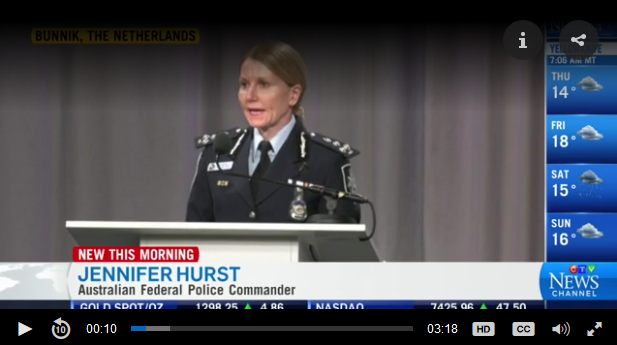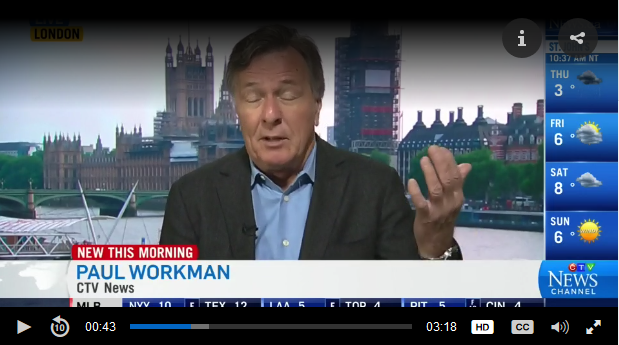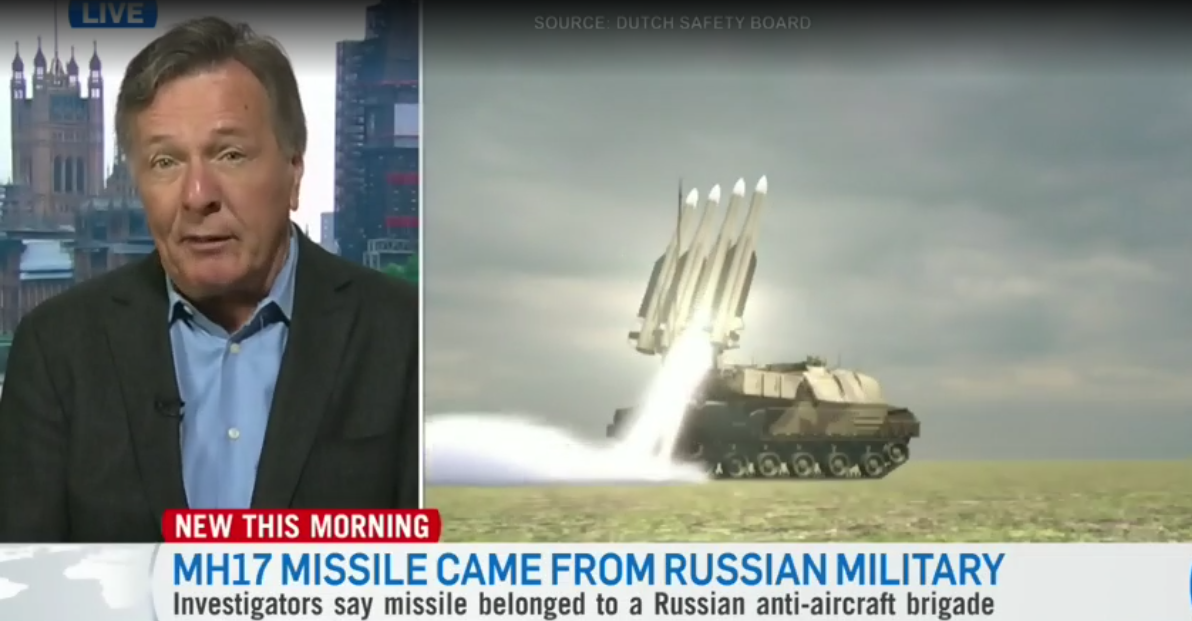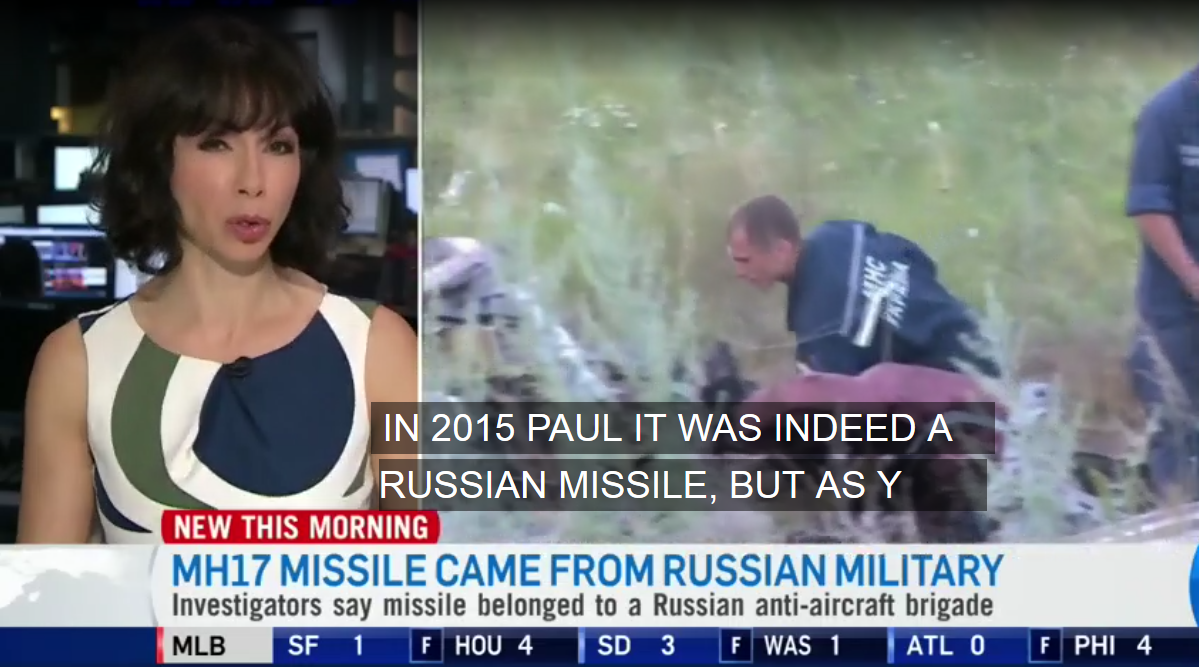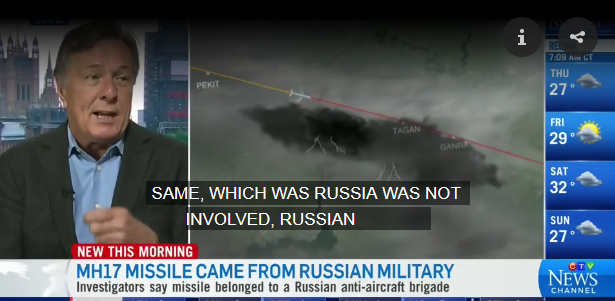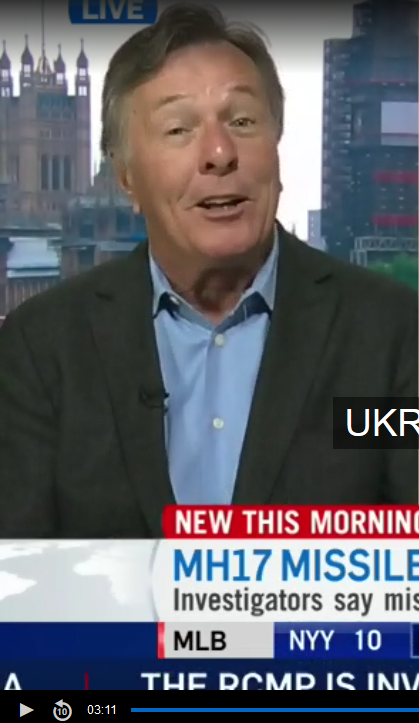30.05.2018 - "Murdered" Russian Journalist Babchenko Alive, Speaks on Ukrainian TV (Video)
"Murdered" Russian Journalist Babchenko Alive, Speaks on Ukrainian TV (VIDEO) - Sputnik International
Arkady Babchenko, the Russian national reported to have been murdered in the Ukrainian capital Tuesday night, has appeared at a press briefing in Kiev alive and well.
Ukrainian Security Service head Vasily Gritsak told reporters at a news conference Wednesday
that Kiev faked Babchenko's murder in an effort to catch those trying to kill him.
Speaking at the press conference, Babchenko said the operation was being prepared over a two month time period, that he was told about it a month ago and offered a chance to take part.
The journalist thanked the Ukrainian Security Service, and apologized to friends and family over what they went through following his reported death.
On Tuesday night, Ukrainian authorities reported that Babchenko had been shot multiple times in the back outside his apartment, and that his wife found him bleeding to death, with the politician dying in an ambulance on the way to hospital. Kiev accused Moscow of involvement in the opposition journalist's "murder", charges which Russian officials
called "the height of cynicism."
Babchenko moved to Kiev from Russia in 2017. DETAILS TO FOLLOW
30.05.2018 - 'Assassinated' journalist Babchenko alive, Kiev says, accusing Russia of murder plot
'Assassinated' journalist Babchenko alive, Kiev accuses Russian intelligence of murder plot
The reported killing of Russian journalist Arkady Babchenko on Tuesday in Kiev was actually a ruse played by the Ukrainian law enforcement to prevent a planned hit, the Ukrainian authorities said.
Reporting on the high profile case on Wednesday, the head of the SBU, Ukraine’s national security service, Sergey Gritsak said Babchenko was alive and unhurt.
He claimed that the SBU had information about a planned assassination attempt on the journalist and acted to derail the plot.
“I want to congratulate his family, all of us and the entire world, which is watching it, and congratulate Babchenko with a third birthday,” Gritsak wrote on his Facebook page.
'Third birthday' was a reference to the journalist’s supposedly last post, in which he described narrowly avoiding death on May 29th a couple of years ago.
After reports of Babchenko’s killing, some Ukrainian officials rushed to accuse Russian intelligence services of masterminding the assassination. It was not immediately clear whether those officials did so as part of the spectacle or simply followed their usual habit of pinning every high-profile crime in Ukraine on Moscow.
The change of Babchenko’s status from murder victim to SBU agent didn’t stop Kiev from making accusations against Moscow.
Gritsak insists that there was a hit on Babchenko ordered by the Russian intelligence. He claimed the contract to kill was worth $30,000 and that the organizer of the crime was arrested.
Babchenko himself said the staging of his death was executed as part of a wider SBU operation to prevent
“massive terrorist attacks” in Ukraine.
“As far as I know, this operation was in the pipeline for two months. I was let in the loop a month ago. Over this month I say the guys worked really hard. They were constantly in contact with me. We deliberated, thought things out, acted. And this covert action was the result,” he told journalists.
Commenting on the development to Interfax, Konstantin Kosachev, the chair of the Foreign Relations Committee in the Russian Senate, called the apparent ruse
“a stage in a series of delusional actions of the Ukrainian authorities directed at Russia”. He said he regretted that Babchenko agreed to be part of it.
May 29, 2018 - Russian journalist and Putin critic Arkady Babchenko shot dead in Ukraine (Video)
Russian journalist and Putin critic Arkady Babchenko shot dead in Ukraine
A prominent Russian journalist and critic of President Vladimir Putin was shot dead in Ukraine where he had fled into exile following threats, police said on Tuesday.
Arkady Babchenko, 41, died of his wounds in an ambulance after his wife found him covered in his blood in their home, police said, adding they suspected the murder was due to Babchenko’s professional activities.
Babchenko, a former soldier in the Chechen war who became one of Russia’s best-known war correspondents, had left his homeland fearing for his life after criticizing Russian policy in Ukraine and Syria.
He had been denounced by pro-government politicians in Russia over comments on social media about the Russian bombing of Aleppo in Syria’s war, and over his characterisation of Russia as an aggressor towards Ukraine.
The first and the most probable version is his professional activity,” Kiev police chief Andriy Kryshchenko said at a televised press briefing when asked what police suspected lay behind the murder.
Babchenko’s wife is in a state of shock and police are unable to speak to her, he said. Ukrainian authorities released a drawing of the man they suspect is Babchenko’s assassin, around 40-45 years old, with a grey beard and wearing a cap.
Two years ago Pavel Sheremet, a Belarussian journalist known for his criticism of his home country’s leadership and his friendship with the slain Russian opposition leader Boris Nemtsov, was blown up in a car bomb in central Kiev.
“Putin’s regime takes aim at those who cannot be broken or intimidated,” Anton Gerashchenko, a Ukrainian lawmaker and adviser to the interior minister, wrote on Facebook.
Babchenko’s house had run out of bread and he had gone to the shops to buy some, Gerashchenko said. He was gunned down on Tuesday by someone waiting for him in the stairwell at the entrance to his home. He was shot him in the back several times.
“Today in Kiev on the threshold of the apartment where he lived, famous Russian journalist Arkady Babchenko was shot and killed, a consistent opponent of the Putin regime and a friend of Ukraine.”
In a statement, the Russian foreign ministry said journalists were being killed with impunity in Ukraine.
“Bloody crimes and total impunity have become routine for the Kiev regime. We demand that the Ukrainian authorities make every effort to promptly investigate,” it said on Facebook.
The Investigative Committee of Russia said it had opened a criminal case into Babchenko’s death.
Babchenko took part in the war in Chechnya as a soldier. He then he became a war reporter for several Russian newspapers. On Feb. 27 last year, he wrote on Facebook that he had left Russia.
He reported on Russia sending private military contractors to Syria and the downing of Malaysia Airlines Flight MH-17 in July 2014 in eastern Ukraine, for which investigators last week held theRussian state responsible. Russian authorities again denied any connection with the plane’s downing over an area of Ukraine held by pro-Russian separatist forces.
In his last Facebook post before he was killed, Babchenko recalled an incident four years ago when he was meant to fly in a Ukrainian military helicopter in Ukraine’s embattled Donbass region. The helicopter was overloaded and he was not permitted to fly. It was shot down and 14 people on board were killed. “And I was lucky. Second birthday, it turns out,” he wrote.
Wed May 30, 2018 - 'Murdered' Russian journalist Arkady Babchenko appears on Ukrainian TV (Video)
Arkady Babchenko, 'murdered' Russian journalist, appears on Ukrainian TV - CNN
Wed May 30, 2018 - Anti-Kremlin Russian journalist's death in Ukraine was faked, used to thwart murder plot, officials say
Anti-Kremlin Russian journalist's death in Ukraine was faked, used to thwart murder plot, officials say
Wed May 30, 2018 - Arkady Babchenko: Ukraine blames Russia for journalist murder
Ukraine blames Russia for reporter's death
Ukraine's Prime Minister Volodymyr Groysman has accused Russia of being behind the killing in Kiev of the Russian journalist Arkady Babchenko.
"I am confident that the Russian totalitarian machine did not forgive him his honesty and principled stance," the prime minister posted on Facebook.
A Kremlin critic, Babchenko was gunned down outside his apartment on Tuesday.
Russia has called for an investigation but said "bloody crimes" had become routine for the "Kiev regime".
Relations between Russia and Ukraine remain tense following Russia's annexation of Crimea in 2014 and the seizure of parts of eastern Ukraine by pro-Russian forces.
What is known about the killing?
Babchenko, 41, was found bleeding at the entrance to his block of flats by his wife and died in an ambulance.
He was reportedly shot several times in the back.
Ukrainian lawmaker Anton Herashchenko said the journalist had gone out to buy some bread, and that the killer was waiting for him.
Kiev police chief Andriy Kryshchenko told local media they suspected Babchenko was killed because of his "professional activities".
In his last Facebook post just hours before the attack, Babchenko recalled a lucky escape four years ago - exactly to the day.
He wrote that he had planned to fly with Ukrainian soldiers on a helicopter to the war zone in Ukraine's east.
He was not allowed on board, because there was not enough space. The helicopter was shot down by pro-Russian rebels, leaving 14 people dead.
Babchenko reported for the BBC about the helicopter crash. "I was lucky. A second birthday, it turns out", he wrote in his recent Facebook post.
What has the reaction been?
In his reaction, the Ukrainian prime minister referred to Babchenko's last Facebook post.
"This is the last post of Arkady Babchenko. Ten hours ago he wrote about his second birthday. And then they killed him.
"I am confident that the Russian totalitarian machine did not forgive him his honesty and principled stance. He was a true friend of Ukraine who told the world the truth about Russian aggression."
Mr Groysman added: "The killers should be punished."
Russia's foreign ministry said in a statement: "We demand that the Ukrainian authorities make every effort to promptly investigate."
It added: "Bloody crimes and total impunity had become routine for the Kiev regime", while offering condolences to Babchenko's family and friends.
Journalists and politicians have also been reacting to Babchenko's murder.
Independent Russian
journalist Yevgenia Albats tweeted (in Russian): "There was not a single reason for Arkady Babchenko's murder apart from what he wrote. No other reason."
Russian opposition
politician Dmitry Gudkov tweeted: "I'm so tired of finding out that my friends, acquaintances and people I know keep getting killed."
Who was Arkady Babchenko?
While studying law in Moscow aged 18, Babchenko was conscripted into the Russian army and served during the Chechen wars from 1994 to 2000.
His memoir, One Soldier's War, chronicles his experiences in the conflict, which claimed the lives of tens of thousands on both sides.
He then became a journalist, working for a number of different outlets.
A well-known Kremlin critic, he stood in
unofficial elections organised by the opposition in 2012 and denounced Russia's actions in Syria and eastern Ukraine.
In December 2016,
Babchenko wrote a Facebook post (in Russian) about a crashed Tu-154 transport plane, which crashed into the Black Sea while carrying a Red Army choir to Syria.
He claimed this Facebook post, in which he described Russia as an "aggressor", led to death threats and abuse from the Russian state.
He wrote in
a piece for The Guardian that this forced him to leave "a country I no longer feel safe in".
He first moved to Prague and later to the Ukrainian capital.
A former war correspondent, he worked in Kiev as a presenter on Ukraine's channel ATR TV.
Kiev has in recent years seen a number of deadly attacks on high-profile figures, including journalists and politicians. Most of them were vocal critics of the Kremlin.
The leading Belarusian journalist and Kremlin critic, Pavel Sheremet, was killed by a car bomb in Kiev in July 2016.
Another car bomb killed Ukrainian military intelligence officer Col Maxim Shapoval in June 2017 in what the Ukrainian authorities called a terrorist act.
In March of the same year, former Russian MP Denis Voronenkov was shot dead outside a hotel in Kiev.
30.05.2018 - Wow! Only in Ukraine': Babchenko's 'Jon Snow' Style Resurrection Stirs Twitter
'Wow! Only in Ukraine': Babchenko's 'Jon Snow' Style Resurrection Stirs Twitter
Utter confusion reigned on social media following the news of Russian journalist Arkady Babchenko, who had been reported shot and killed in Ukraine on May 29, actually being alive.
Mr. Babchenko turned up at a news conference on May 30 to the surprise of the international community and media alike. According to Vasily Gritsak, head of the Ukrainian Security Service, the journalist's death was faked to catch those who were trying to kill him.
Reactions poured from social media users, amid the unexpected revelation Babchenko showing at the conference in Kiev.
Reports of Babchenko's death came in on Tuesday, with high profile politicians and the journalist's friends and colleagues
reacting to the news of the murder.
During the press conference, Mr. Grytsak told the audience that the "organizer of this crime" was detained in Kiev. He also accused the Russian security services of recruiting a Ukrainian national to kill Mr. Babchenko.
The Russian Foreign Ministry has reacted to the staged death, saying that they were happy Mr. Babchenko had turned out to be alive after all. The Ministry however noted that Ukraine has used his story as propaganda.
Prior to the latest development, Kremlin spokesman Dmitry Peskov called Ukraine's accusations against Russia cynical.
